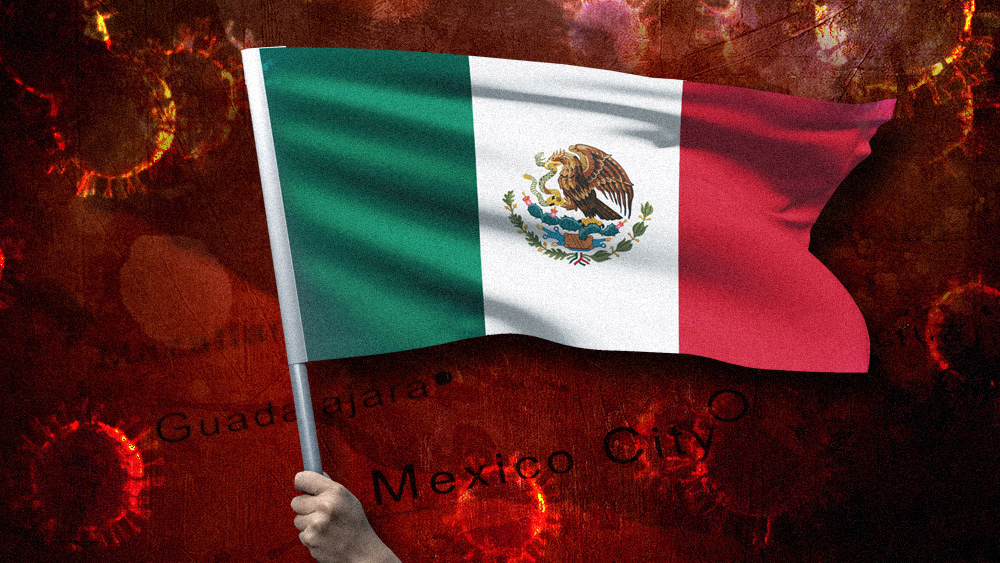After months of strict coronavirus border controls, Denmark is ready to reopen
06/20/2020 / By Arsenio Toledo

At the beginning of the Wuhan coronavirus (COVID-19) pandemic in Denmark, the country swiftly closed its borders with the rest of the European Union and the United Kingdom. Now, months after imposing strict (and smart) border controls, the country is ready to reopen.
Denmark began welcoming visitors from Norway, Iceland and Germany on June 15. They allowed entry to “lovers, grandparents and children from other EU countries and the UK.” After they partially reopened their borders, Prime Minister Mette Frederiksen informed the Danish Parliament that work was immediately being done to reopen to other EU members and the UK.
Under these new policies, which will come into effect on June 27, tourists from the EU and the UK will be allowed to enter if their home country has fewer than 20 confirmed cases of COVID-19 for every 100,000 inhabitants. Denmark currently still has strict border controls for visitors from Sweden and Portugal, who did not meet the country’s criteria.
Danes will also be allowed to travel to countries that fulfill the government’s criteria if those countries mutually allow Danish citizens to enter. Denmark’s list of countries with this open border policy will be reviewed by health authorities on a weekly basis.
“We are in a much better place in Denmark than we had dared hope for just a short time ago,” said Jeppe Kofod, Minister for Foreign Affairs. “Therefore, we can now relax the travel guides in a way that allows us to open up most of Europe.”
Denmark’s tourist industry experienced a sharp blow when the country imposed its strict lockdown. Stakeholders in Denmark’s tourism industry have been pushing for the government to reopen the economy. Now, with the progressive relaxing of lockdown restrictions, they are getting their wishes fulfilled. (Related: Denmark locks down ENTIRE COUNTRY in response to coronavirus pandemic.)
Listen to this episode of the Health Ranger Report by Mike Adams, the Health Ranger, as he talks about how globalist open border policies accelerated the spread of the coronavirus pandemic.
Danish economy begins long road to recovery
In early March, Denmark was one of the first countries in the EU to impose lockdown restrictions. They closed down many public spaces, suspended schools, ordered restaurants to cease operations and shut down their borders. This swift response is paying off.
Last month, Denmark became the first nation in the EU to open its primary schools. This was followed by the reopening of the country’s restaurants, shops, hairdressers, zoos and museums. And to reduce the risk of the country experiencing a second wave of the coronavirus, the government has pledged to begin mass testing everybody with coronavirus symptoms. This comprehensive testing program is, according to Minister of Health Magnus Heunicke, “the most effective way that we can stop the spread of the infection.”
Until now, Denmark has only been testing at-risk segments of the population and those with severe symptoms. They have begun setting up areas in Copenhagen and in other regions where they can conduct coronavirus tests and expand the country’s currently limited testing capacity.
“Denmark is top of the class when it comes to a fast response,” said Soren Riis Paludan, professor of virology and immunology at Aarhus University. “We have built a bubble around Denmark.”
Paludan says that the country’s biggest concern now isn’t the possibility of a second wave, but ensuring that the Danish economy fully recovers from months of reduced economic activity.
Health officials said that, based on five weeks’ worth of data, reopening Danish schools did not worsen the country’s coronavirus outbreak. If health officials continue prescribing good news for the country, the government may begin focusing on restarting Denmark’s export-oriented economy.
According to Magdalena Andersson, the Minister of Finance, because Denmark’s main exports are “drugs and pigs” – pharmaceuticals and food – the economy might not come out too badly from the crisis, especially since their exports are considered essential. But the Danish government still believes that the country’s gross domestic product will contract by around 5.3 percent.
However, thanks to smart border control policies and the reopening of travel to and from most of Europe, there may be a chance that Denmark walks away from the pandemic relatively unscathed.
Sources include:
Tagged Under: border policies, border security, business, China, coronavirus, covid-19, Denmark, economic collapse, economy, exports, financial crisis, Flu, government, infections, lockdowns, mass testing, Mette Frederiksen, outbreak, pandemic, reopening, restrictions, superbugs, Tourism, virus



















